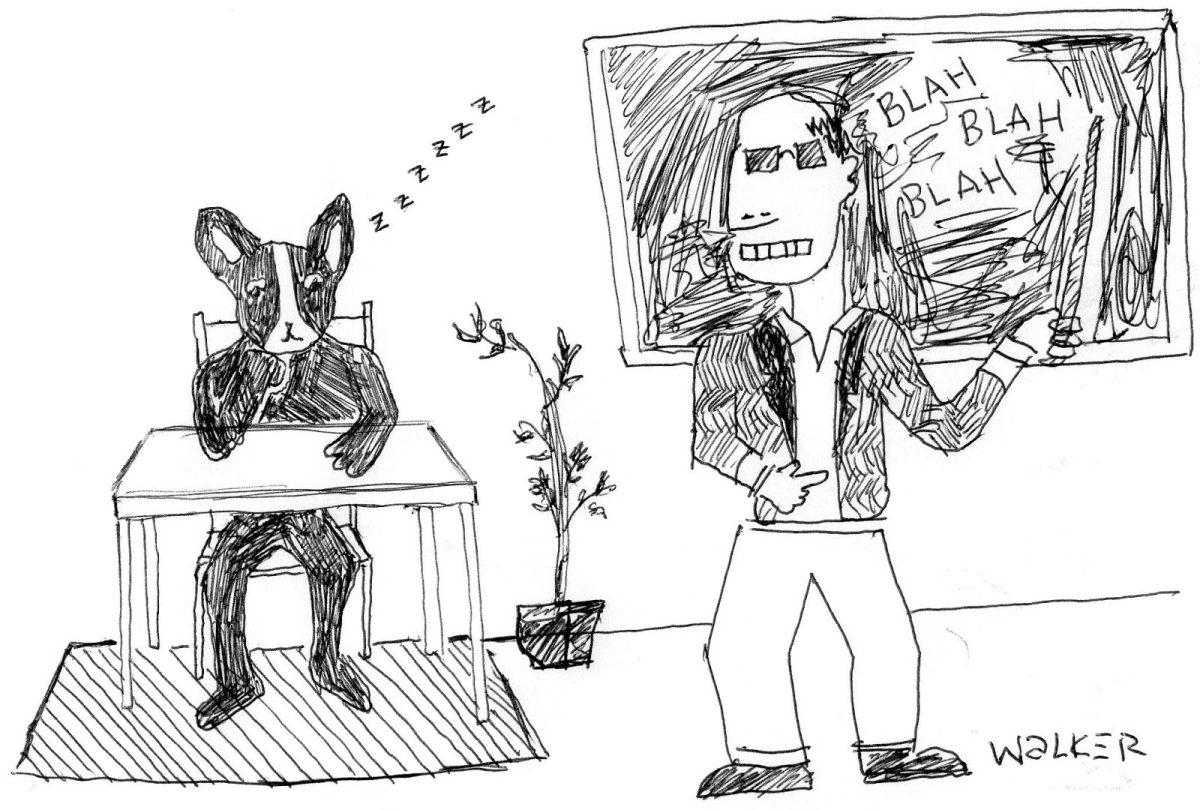Many students have been hit harder than normal with the mid-semester exhaustion
It’s 3:00 a.m. I used to have one of those blinking clocks with the red dig- ital numbers, and now I have just my phone. It’s died three times tonight because I can’t seem to bother with charging it. At eight tomorrow morning, I have a class that in the blind sleeplessness of the early morning I know nothing about. The Big Slump is upon us.
The ordinary mid-semester slump is enough to make the best students rethink their major choices and wish for an easy 100-level English course where they can sit back and not read Fitzgerald and still pass. It’s the time when essays are done last minute, where assignments seem pointless and incomprehensible, the degree you’re after comes under heavy questioning and the group project is always someone else’s problem.
However, we are in no ordinary mid-semester slump. A curious cocktail of circumstances have made this semester particularly challenging for many students. Online learning is the first offender.
Whether you’re fully remote or partly remote, living on campus or not, some part of your schedule likely involves a Zoom course. It takes its toll. Not having to run to Old Main every day for classes only stacks on the apathy. With Zoom you can sign in, keep the lights in the room dark, and drift through with your screen off without having to spend too much thought on class.
It’s not just online learning that’s a problem either. The circumstances that have made online learning necessary are also making many other things less accessible, such as partying or going places or hanging out with friends. A lot of people are feeling alone, and somehow the “wyd?” text doesn’t seem to quite fill the gap.
For me, and for many others I know, what makes the slump the slump is the unwillingness of our minds to do the work. That’s why it’s 3:00 a.m. We’re unwilling because we need relevance. When the going gets tough, it’s those with purpose that stick it out, those who can connect the small task—the test or essay—with the big picture. In 2020 we need relevance more than ever.
With the election three weeks away, the virus trending upward, the ongoing battle for racial equality, the slow and steady loss of the planet to climate threats—how on earth can eighteenth century British literature be relevant?
Someone studying cell structures in bio asks about the powerhouse of the cell and I respond it’s the midi-chlorian and he corrects me, no it’s the mitochondria, and we both laugh at how absolutely beside the point everything is. We’re not even in the same football field as the point.
So what do we do? There’s no way around it. The Big Slump is hitting hard, and it’s all we can do to keep track of which professor is pummeling us with assignments today—let alone worry about our future, the future of Wofford, of America, of the human race.
I have no answer to this question and it would be false to say so. We will likely keep trucking along like always, no matter the size of the slump, and focus on the day to day, keep up with the busy work, the midterms, all of it. But there’s no denying that some humanity disappears along the way, that the guy up at 3:00 a.m. is losing something with each word he gets closer to his word count.
Ah and here’s mine! The after hours lead to the strangest of thoughts. We all knew the slump was coming, and we all knew it would be big. Yet, if the way we’ve always done things has led to the same place, the same results, the same slump, at what point should we change those ways? There’s a relative insanity to expecting the slump and doing nothing to prevent it.
The whole thing’s a downer to be sure. Perhaps hope comes from an in-between place, like sleeplessness, laying in bed awake—hope that one day we can make the whole thing work.
Until then we keep going, day by day, minute by minute, word by word.



























